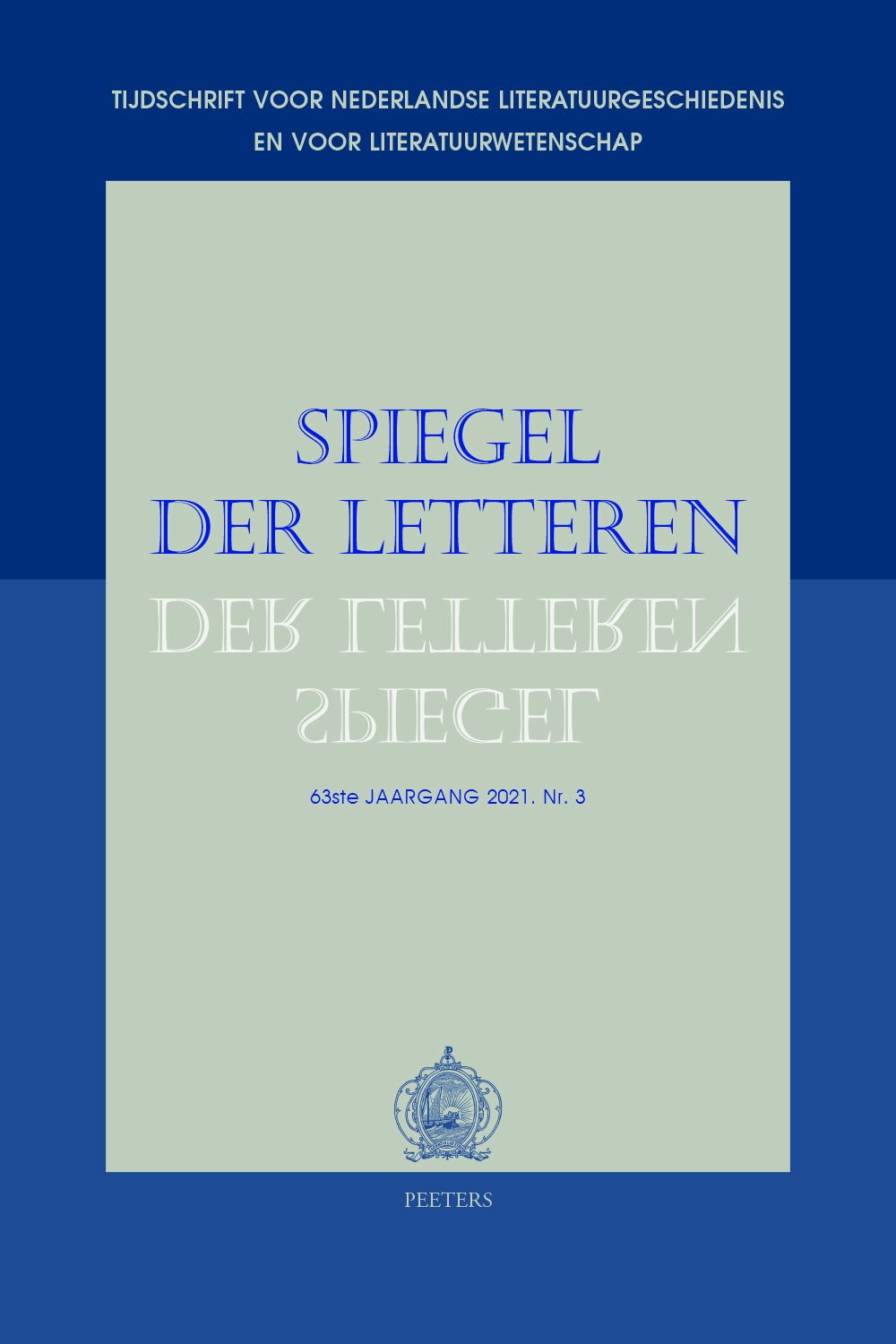 previous article in this issue previous article in this issue | next article in this issue  |

Preview first page |
Document Details : Title: De perverse schoonheid van het niets Subtitle: Sartre leest Flaubert (L'Idiot de la famille, 1971-1972) Author(s): GELDOF, Koenraad Journal: Spiegel der Letteren Volume: 48 Issue: 3 Date: 2006 Pages: 331-368 DOI: 10.2143/SDL.48.3.2020214 Abstract : The essay focuses on one of the strangest texts by Sartre, one that is very often evoked, but far more rarely read. Why read, indeed, this unfinished epos of more than 3000 pages, and why bother at all with such a reading in the case of an author who – it is proclaimed in various intellectual quarters – belongs to an era that has long since vanished. Given this situation, the essay tries in the first place to reconstruct the genesis of the Flaubert reading and to give it a place in Sartre’s oeuvre; this analysis also deals with the difficult question of the generic specificity of L’Idiot de la famille. The second and largest part of the essay articulates the main issues of the Flaubert reading itself – a complex task since Sartre’s study is characterized by a startlingly meandering way of reading and writing, dealing at the same time with textual, intertextual and contextual questions. The essay tries to structure these manifold and highly intertwined Sartrean issues. The conclusion of the essay is as simple as it is provocative: Sartre is absolutely still our contemporary – a disturbing one, at a closer look, to be sure, but nonetheless, or just because of that: an essential contemporary. |
|


